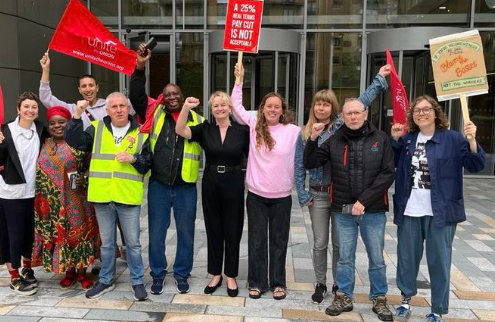Charities are failing to act on their own concerns around the impact of climate change, a survey has revealed.
The survey found that nine in ten (88%) charity professionals believe their organisation is concerned about climate change and more than seven in ten (71%) say their charity has been directly affected by damage to the environment or expect to be in the future.
But when asked if their charity had taken serious action to tackle climate change, such as including environmental action in their strategies, more than half (52%) said either “no” or “not sure”.
The most common reason given for failing to tackle climate change was that charities had “more pressing priorities”, found the survey, which has been carried out by Charity Digital for the not-for-profit tech specialist’s campaign on climate action, which launched earlier this year.
More than a quarter (26%) said more pressing priorities were a barrier to taking more climate action. Meanwhile, 17% said the lacked the knowledge to act and 13% cited cost issues.
Other barriers include a lack of knowledge and interest among charity leaders.
“Environmental sustainability could be addressed as a bigger priority to organisations, alongside similar issues such as diversity, governance, and financial sustainability,” said a report by Charity Digital detailing the survey’s findings.
“We know that charities and those working in them at all levels are concerned about climate change and environmental sustainability. However, the report also showed that charities were less clear about the actions they were taking now and, in the future,” it added.
Most respondents marked their charity’s environmental sustainability efforts at between four and six out of ten, despite 94% believing the charity sector has an obligation to address climate change.
“Climate change is on the radar but not yet seen as a priority issue,” said one charity professional, stating that finance and “huge policy/legal changes” are needed before non-profits can make practical changes.
Another added: “Those [charities] who aren’t related [to climate change] are still in a bubble of not thinking it is relevant/a priority.
“But we have seen that charitable work is really important in the face of the impacts of climate change e.g. weather extremes and the cost of energy/fuel and the rising cost of food.”
Meanwhile, another respondent said: “Minimal attention has been given to practices like recycling and travel, but beyond that, not much.”.
Climate concerns
In July a separate survey, carried out by the Association of Charitable Foundations, found that 61 funders have either made some progress or at an advanced stage in educating trustees, staff and stakeholders about climate change this year, compared to 47 the previous year.
But this survey of funders found that those investing in a post carbon economy has dropped from 53 to 46 over the same period.
A further call for charities to do more to reduce the impact of climate change was made in a policy paper by think tank New Philanthropy Capital earlier this year amid concerns that young people are among groups being hardest hit by extreme weather and pollution.
This called for charities and funders to “move beyond greening their operations” to ensure their strategies focus on how they can tackle the effect of climate change on young people and ensure their mission and programmes are making “the greatest impact” on improving the lives of young people.
Research carried by finance firm RSM earlier this year found that charities still have work to do to promote their environmental, social and governance (ESG) work.
There has been an increase in the proportion of charities including a separate ESG page on their website, up from 14% last year to a third (33%) this year. This includes pages titled “sustainability” or “responsible business”.
Latest News
-
X-odus sparks video content boom among charities, report finds
-
Charity handed £25m endowment from autistic philanthropist to help others with the condition
-
Civil Society Covenant blighted by delays and U-turns, report warns
-
More than 30 jobs at risk as hospice charity looks to close home care service
-
Cranfield Trust: A guide for charity leaders on navigating local authority devolution
-
Friday funding roundup - 20 February
Charity Times video Q&A: In conversation with Hilda Hayo, CEO of Dementia UK
Charity Times editor, Lauren Weymouth, is joined by Dementia UK CEO, Hilda Hayo to discuss why the charity receives such high workplace satisfaction results, what a positive working culture looks like and the importance of lived experience among staff. The pair talk about challenges facing the charity, the impact felt by the pandemic and how it's striving to overcome obstacles and continue to be a highly impactful organisation for anybody affected by dementia.
Charity Times Awards 2023
Mitigating risk and reducing claims

The cost-of-living crisis is impacting charities in a number of ways, including the risks they take. Endsleigh Insurance’s* senior risk management consultant Scott Crichton joins Charity Times to discuss the ramifications of prioritising certain types of risk over others, the financial implications risk can have if not managed properly, and tips for charities to help manage those risks.
* Coming soon… Howden, the new name for Endsleigh.
* Coming soon… Howden, the new name for Endsleigh.
Better Society

© 2021 Perspective Publishing Privacy & Cookies




.jpg)









Recent Stories